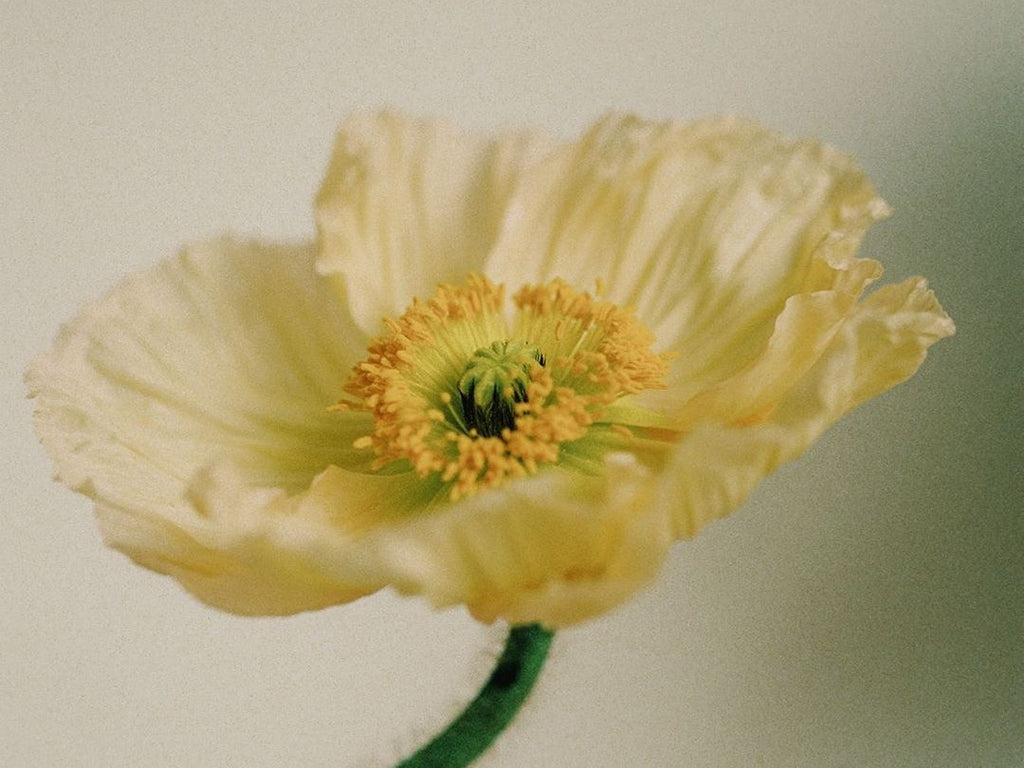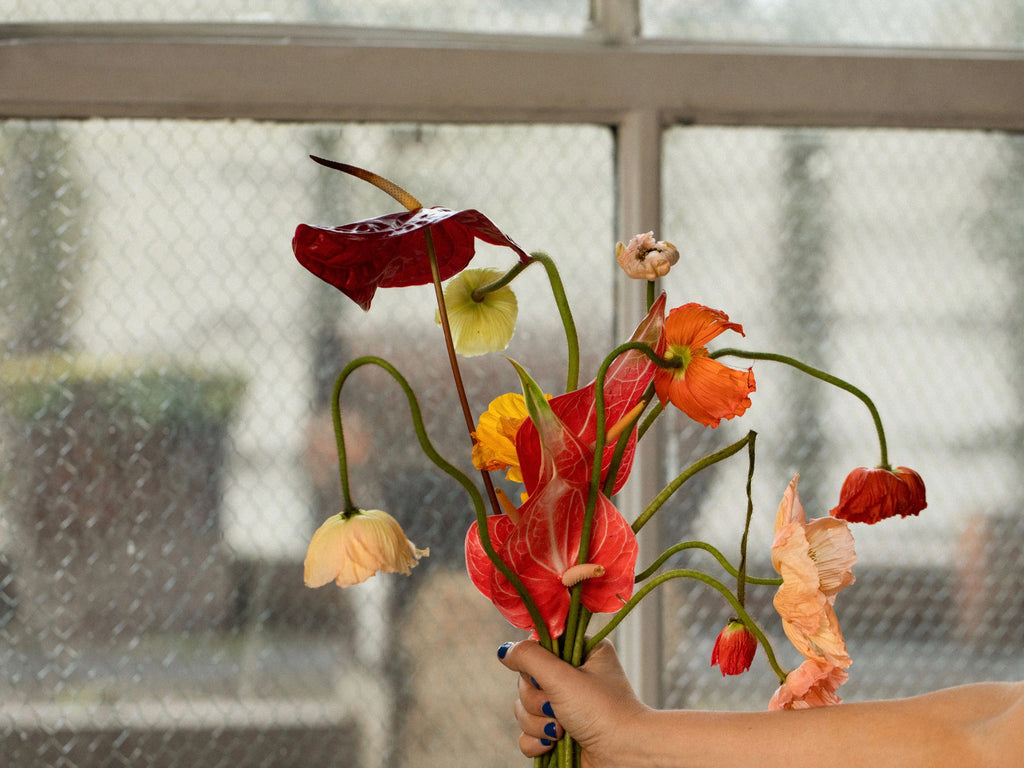How to Mindfully Approach Money During a Pandemic
Navigating finances through society’s current state of trauma starts with a holistic approach.
With our pre-COVID lives feeling like – well, a literal lifetime away, money matters are just one of a myriad ways in which our current reality puts a microscope on how we took our past reality for granted. From joblessness and small business survival to those who are saving more by virtue of staying in and spending less, the only thing that’s for certain is that everyone’s finances look different than they used to. Through a lens that considers the impact of trauma on our relationship with finances, mindful money educator Chantel Chapman offered her insight on some of our most burning pandemic questions. Her unique approach encourages us to take inventory of our priorities, which will help direct our use of money to better align with our values.
How should people who have lost their jobs approach their finances if they don’t have an emergency savings fund for a time like right now?
I have empathy for these people. There’s a little bit of a blessing in a collective space: if you lost your job with no emergency fund but we weren’t going through a pandemic, you wouldn’t get a government stimulus. This is a major opportunity to ask, Why am I in this position? What’s the responsibility that I need to take with this? It might be that you didn’t have any backup funds, so you want to take this as an opportunity to learn and grow from it. This starts with managing your finances in a way that’s about esteemable action; action that leads to self-esteem. A lot of people carry shame about their financial situation, which can lead to an avoidance – a common money disorder with millennials. People are caught in the ‘freeze’ part of the fight/flight/freeze impulse, and don’t take action because they don’t feel good enough about themselves. Small, esteemable actions will lead to feelings of self-esteem.
There’s been a lot of talk about shifting the economy from a money-based system to one that is values-based. Do you think that consumer patterns will reflect this in the future?
I hope so. I think that consumerism is so ingrained in us that it’s going to take a lot of work on an individual level to come out of it. We’ve created a world where people are addicted to capitalism. When things go back to normal, we might go back to needing to soothe our pain with consumerism and buying. When we can individually, and then collectively, take on our own healing – where we connect to a higher state of consciousness – then we can find the ability to sit with pain.
Finding purpose and meaning has to happen on an individual level, which starts with reclaiming your values, and spending your money in a way that’s aligned with that. This may not necessarily be the values that society tells you to have, such as home ownership, or the American dream. If you go inwards and reclaim yourself, you might realize that the legacy you want to leave behind has nothing to do with such societally-placed values.
"If you go inwards and reclaim yourself, you might realize that the legacy you want to leave behind has nothing to do with societally-placed values such as home ownership"
For those of us who are lucky to have jobs, how much should we be thinking about saving right now?
I think now is such an incredible time to reprioritize what we value and make sure that our spending is aligned with that. From consumerism to a ‘keeping up with the Joneses’ mindset, we’ve been programmed from so many different directions. Now is a good time for us to reclaim the way we spend our money, and reclaim our values. This means exploring the difference between needs and wants.
"Now is a good time for us to reclaim the way we spend our money, and reclaim our values"
You shouldn’t spend your money in a way that prioritizes other people’s income over your own. If you’re only spending money because you feel pressure to support a small business – especially if your income is uncertain – I would consider that to be codependent, and that’s not healthy. We need to get out of a state of fear, because we cannot access cognitive reasoning when we’re in it. We also need to take a look at the reality of our individual financial situations. Do you have debt, an emergency fund, additional savings? What would happen if you lost your job? How many months could you survive? You should find the middle ground between the worst case scenario and the mentality that you’ll be fine, and plan from there.
Would right now be a good time to invest in property, considering low interest rates in our current climate?
Warren Buffet says the best time to invest is when there’s blood in the streets – when there’s chaos, and markets are crashing. If you have the means, it’s typically a good time to invest, but all investments have a different level of risk. You need to look at what that is for that specific investment, and your own internal level of risk. If you’re buying a home to live in, it takes on a different energy than something to just invest in. Part of that is investing in yourself and your values. You’re not going to be too concerned about your property value not increasing for 15 years if you plan to live there for 30 years. Add those metrics into your calculation on return of investment.
"If you’re buying a home to live in, it takes on a different energy than something to just invest in. Part of that is investing in yourself and your values"
How can we be thinking about abundance beyond the realm of personal finances?
There’s a three-step process to creating more abundance. The first is acceptance, which starts with doing inventory of your life and accepting that this is where you’re at.
Then we can move out of victim consciousness, which keeps us in a state of fear, and allows us to move to a place of gratitude, which means tapping into areas in our life where we feel abundant, and allowing ourselves to be thankful for that. Take some time to re-look at how you can bring in more creative energy in your life. What are ways to create new income streams that may not have been available to you in the past. Or, maybe they were available to you, but you had a belief that you couldn’t do it? Spend some time developing that creativity muscle.
"Take some time to re-look at how you can bring in more creative energy in your life"
Then we’re able to be in this state where we start to fall in love with what we have, rather than noticing what we don’t have. This protects your nervous system so it’s in a place where it’s stable, which is when we can start to make financial decisions and find new ways to generate revenue. It’s easy to lose sight of these options when your nervous system is hyper-aroused.
Drawing influence from 14 years of experience as a mortgage broker, 10 years as a financial literacy consultant, and extensive research in addiction, behavioral science, and mindfulness, Chantel Chapman's distinct disciplines make learning about money the antithesis of anything you experienced through traditional schooling. Chantel recognized the need to explore the ties between addiction and money to help people heal, grow, and strengthen their relationship with their bank accounts. After completing meditation and Kundalini teacher training in India and Vancouver, intentional mindfulness for healing behavioral issues with money have become a core part of her financial literacy business.
This post is tagged as:
You may also like...
The Latest
People & Places
How Ara Katz is Redefining “Self-Care” as Rooted in Science with Seed
The co-founder, mother, and self-proclaimed serial entrepreneur unpacks her philosophy on what it means to be well. Ara Katz hates the word “success”. Not because of its listed definition in a di...

Do Good Werk
9 Passive-Aggressive Email Phrases That Are Basically Evil
A Rosetta Stone for every time you want to :’).

Woo Woo
Get to Know Your Astrological Birth Chart
How to find meaning in the stars — and what it means for you.

People & Places
The 5 Best Places In New York To Meet Your Next Investor
Where to rub shoulders with the city's movers and shakers.

Do Good Werk
10 Unhealthy Thoughts You Convince Yourself Are True as a Freelancer
If you work alone, you might be particularly susceptible to distorted thoughts that hurt your mental health.

People & Places
Creating a Conference-Meets-Summer-Camp for Adult Creatives
An interview with Likeminds founders Rachael Yaeger and Zach Pollakoff This past September, I sat in front of an obituary I wrote for myself after a session with a death doula. No, I didn’t know w...

People & Places
When Something Golde Stays: An Interview with Golde’s Co-CEOs
“For us it was never a question,” says Issey Kobori, speaking of the decision to build a business with his partner Trinity Mouzon Wofford. At just shy of 27, Kobori and Wofford have secured a host ...

Better Yourself
Are They Toxic? Or Are They Human?
There’s a difference between putting up boundaries and putting up walls, and the latter is what breaks relationships.

Do Good Werk
How To Combat Seasonal Affective Disorder At Work
Here’s what to do if seasonal affective disorder starts to take a toll at the office.

People & Places
Reclaiming Womxn's Wellness Spaces from a White-Dominated World
How The Villij built a collective that their community can connect to.









